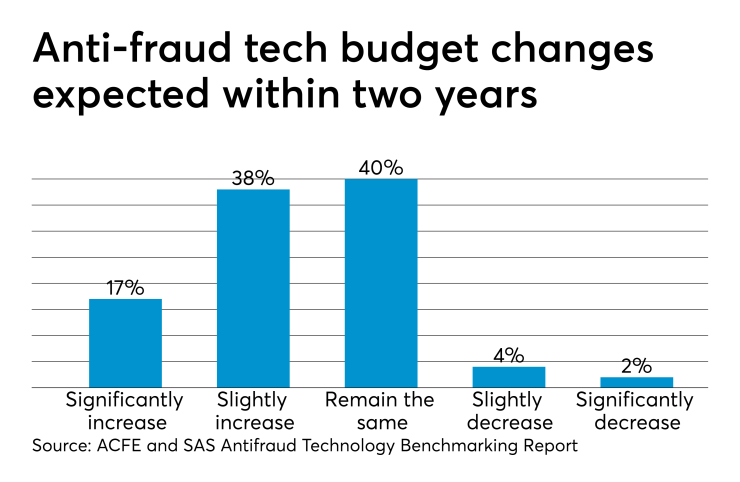Companies are beginning to employ advanced technologies such as artificial intelligence and machine learning to uncover fraud, according to a new report.
The
The report also found that 26 percent of organizations currently use biometrics as part of their anti-fraud programs, and another 16 percent expect to deploy biometrics as part of their programs over the next two years. In addition, according to the report, 55 percent of the organizations surveyed expect to increase their budgets for anti-fraud technology over the next two years. The risk areas where organizations most commonly use data analytics to monitor for potential fraud include purchasing (41 percent) and disbursements (38 percent). Use of automated monitoring, exception reporting or anomaly detection techniques is expected to increase over the next two years to 72 percent of organizations.
Nearly two-thirds of organizations currently use exception reporting or anomaly detection techniques in their fraud-related initiatives, and more than half use automated monitoring of red flags or violations of business rules.
“Technological advancements present opportunities for both fraud perpetrators and those trying to stop them,” said the report. “As criminals find new ways to exploit technology to commit their schemes and target new potential victims, anti-fraud professionals must ensure they are likewise adopting new technologies that are the most effective in navigating the evolving threat landscape.”
"As criminals find new ways to exploit technology to commit schemes and target victims, anti-fraud professionals must likewise adopt more advanced technologies to stop them," said ACFE President and CEO Bruce Dorris in a statement. "But which technologies are most effective in helping organizations manage rising fraud risks? The answer to this question can be crucial in successfully implementing new anti-fraud technologies."
Of the organizations in the study, 55 percent anticipated increasing their budgets for anti-fraud technology over the next two years — 17 percent significantly and 38 percent slightly. Another 40 percent of the organizations polled expect to have their budgets for such technology remain level. Only 6 percent of the organizations surveyed anticipate having their financial resources for anti-fraud technology reduced over the next two years.






